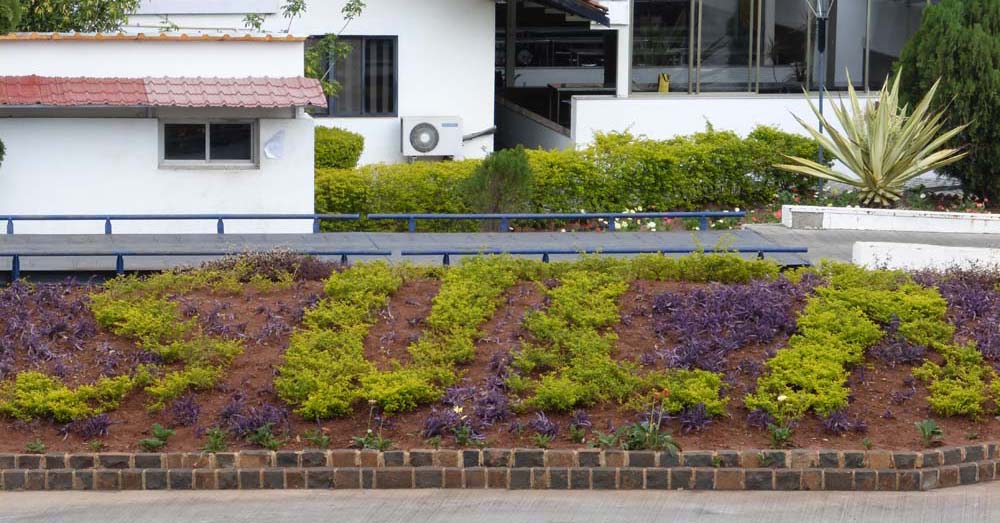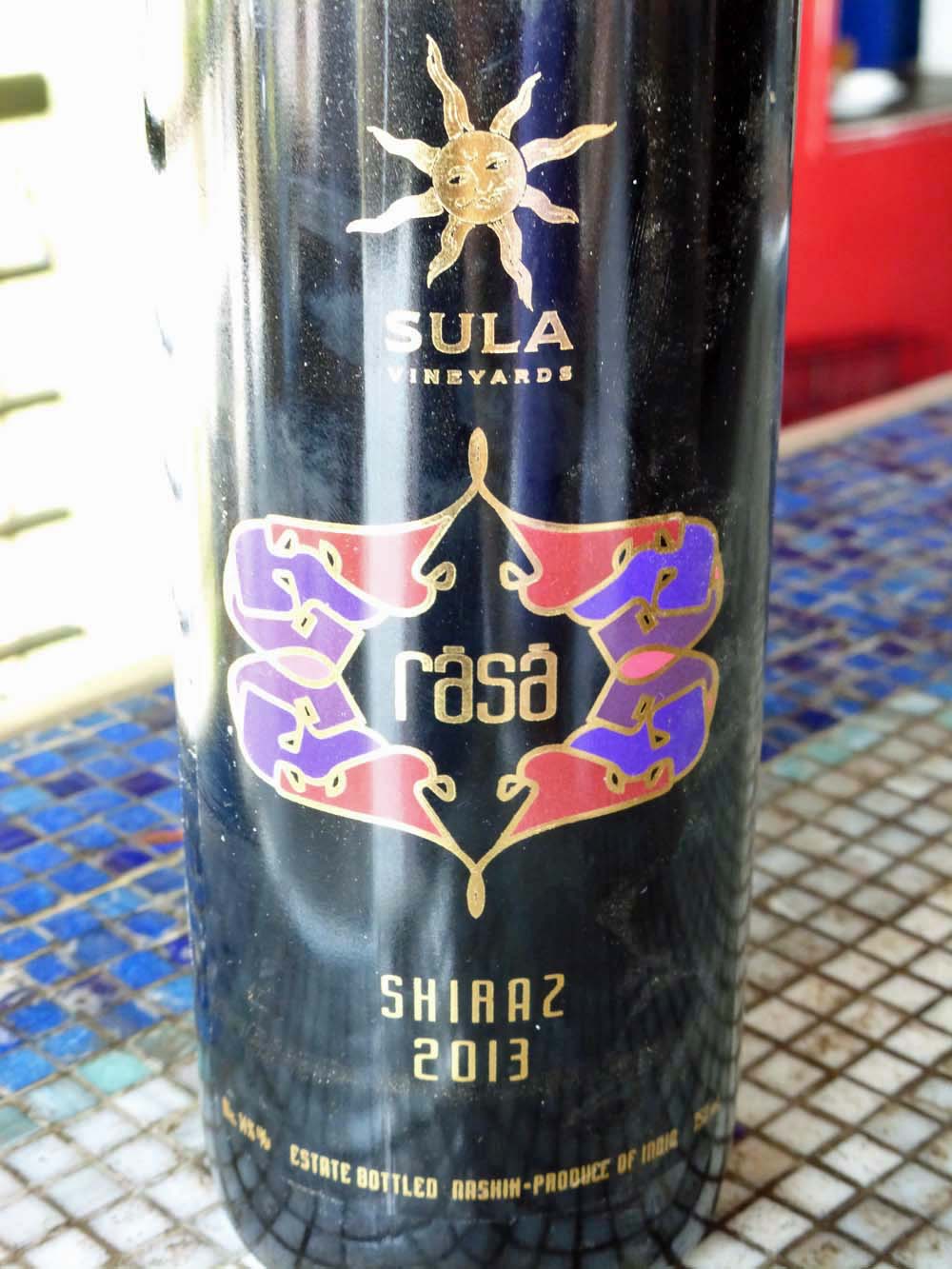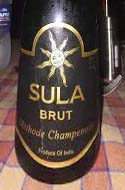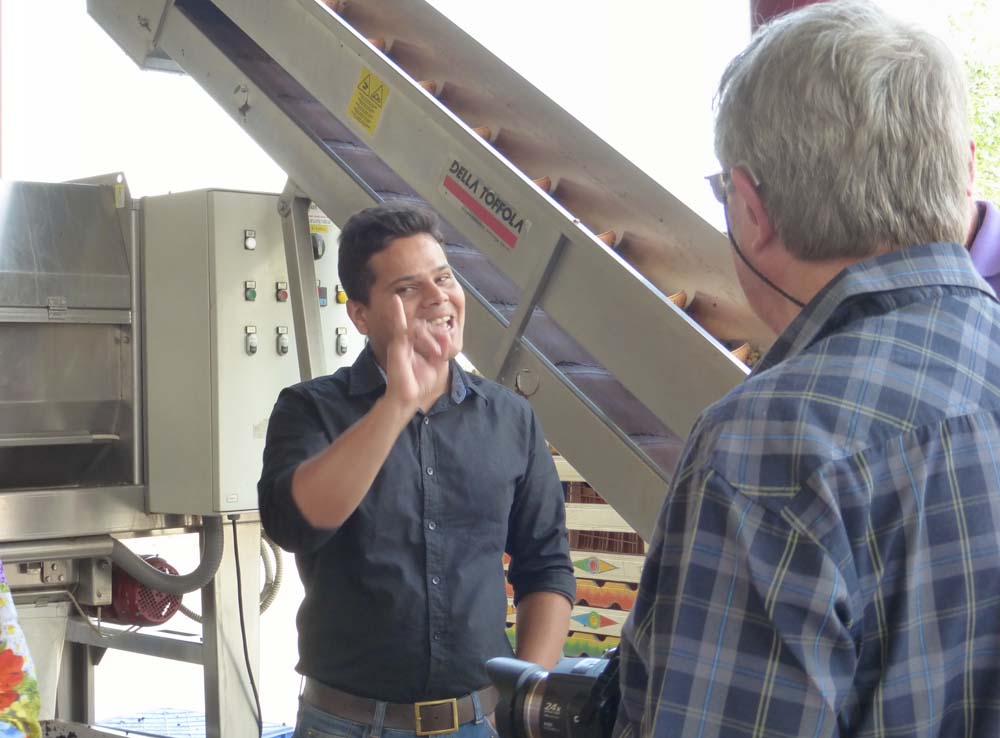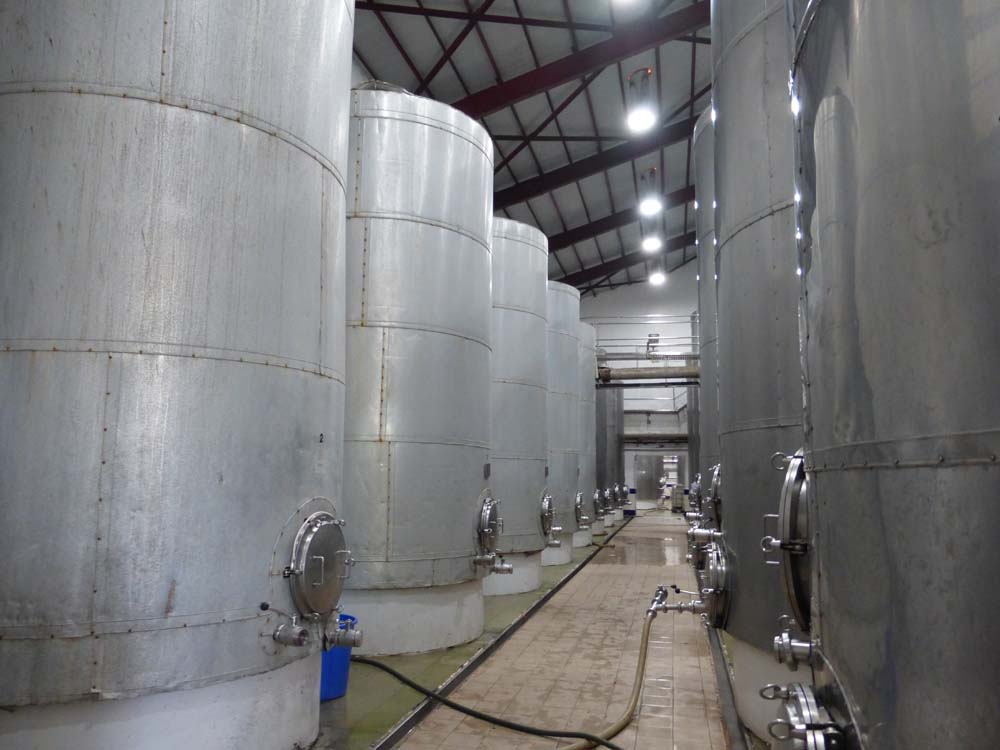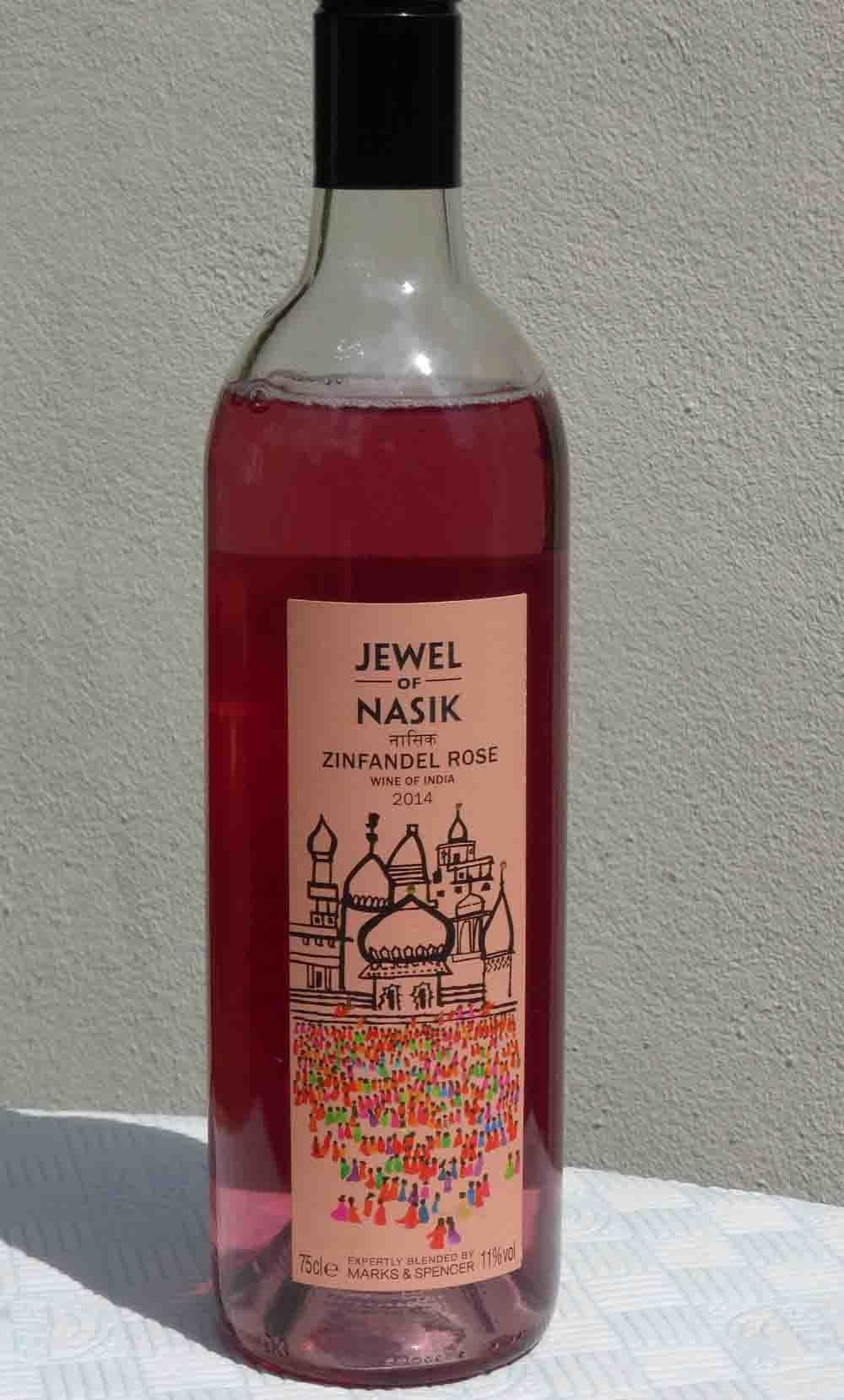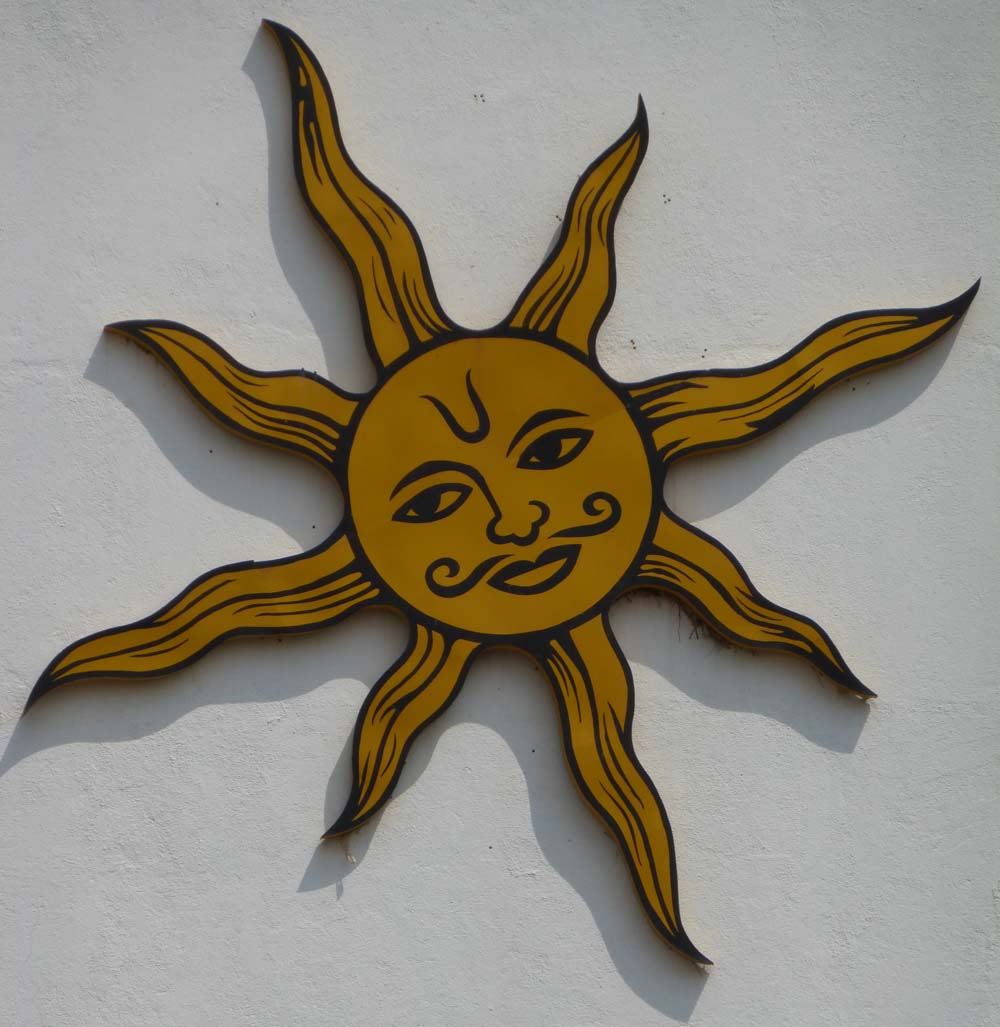
Wine in India
During a tour of North India a couple of years ago, we came across several brands of Indian produced wines including Grover-Zampa, Fratelli, York, Indus and, what became our favourite producer, Sula. With the exception of Fratelli who are based near Solapur South East of Mumbai, the others are all clustered around the religious centre of Nashik, 600 meters up on the Deccan Plateau, about 180 km North East of Mumbai. A recent tour of South India was an opportunity to include a visit to Nashik to see the Sula winery and taste their wines.
Drinking wine is, of course, a very recent addition to Indian culture, but growing at 25% per annum. Much of the wine is made for ladies to drink and their preference seems to be for an off-dry wine. Clearly some education to be done here! However the top Sula wines are quite dry in style and suit both the local food and the western palate very well.
We took the Pushpak Express (something of a misnomer) from Mumbai to Nashik in Second Class. This means curtains instead of doors but does allow interaction with your travelling companions some of whom are going all the way to Lucknow, a journey of 1400 kilometres and more than 24 hours. This is a great way to see the country.
It was lunchtime when we arrived at Sula's new winery just completed in 2006 and we went into their restaurant where they quickly produced a range of very interesting light lunches, very well presented and with a French flair. Our visit was hosted by the Tasting Room Manager, Gaurav Adawadkar. His knowledge of Sula vineyard & winemaking processes made our visit most enjoyable - he could answer any question without hesitation!
Sula was started in 1996 by Rajeev Samant with 100Ha and has grown to produce 9 Million bottles per annum today from 1800 acres both owned and contracted. "Sula" was taken from his Mother's name. The principal grapes grown are Cabernet Sauvingnon, Sauvignon Blanc, Shiraz and Zinfandel with Chenin Blanc being outsourced to local growers. They have recently planted Riesling and this wine was available for the first time this year. The original vines, all grafted, were brought from France but now they propagate their own and also provide vines for their contract growers. The winemaker is Kerry Damskey from California, whose philosophy is simple and straightforward: "It takes great grapes to make great wine".
Nashik is known for the production of table grapes and Sula has had to persuade the local farmers to change the type of grape crop they grow. They now have 600Ha outsourced to growers who also produce for the 40 other wineries in the area.
Nashik is an ideal location for vine cultivation because it is not an Indian climate but more tropical having a good diurnal range and acceptable rainfall boosted by the Sula practice of drip irrigation. Yield is around 4 to 5 tonnes per acre on soils which are generally chalk. They anticipate picking 10,000 tons of grapes in 2015. This year there has been an unseasonal amount of rain which has caused some damage to the foliage of the vines making them brown and unsightly. So far it has not affected the bunches themselves.
The middle of March is harvest time and all the picking is done by hand. They look to reach a Brix value of 22-24 for whites and 24-26 for reds. Red grapes are destemmed whilst white grapes are not.
The tank hall has a capacity of 4.2 million litres and most of the equipment is made locally, only needing to import the more specialised units such as bladder presses. Sula ferment white wines for 25 days at 15 degrees, whilst reds are fermented for 8 - 10 days at 25 degrees. The blending takes place in April for whites and in June/July for reds. Both are bottled by the end of September in order to be ready for the Indian Festival season in October.
When they started, only 2% of their reds were matured in oak whereas today it is 10%. The oak barrels cost $500 each from the USA and they use around 1000 which are replaced every 5 years. Their ordinary Shiraz uses American oak whereas their top Shiraz, Rasa, is matured in French oak. All barrels are racked every 3 months.
10% of Sula production is exported to 22 countries with the biggest customer in the last 3 or 4 years being Japan. The winery gets some 200,000 visitors per annum and on a Saturday they can get 2 or 3000 visitors. They even have a wooden "lagar" where visitors can experience pressing grapes in the traditional, foot-operated, manner!
We tasted 6 wines which we had selected: their Brut Rose is made in a traditional way with the 2nd fermentation in bottle. The wine was a lovely salmon pink colour with apricots on the nose, dry in the mouth, long, with some spice and very smooth. The Sauvignon Blanc is already a firm favourite being crisp and dry with good fruit. However some felt the Viognier to have less character whilst others loved it and the Zinfandel Rose 2014 raised mixed comments too. The Satori Merlot/Malbec 2014 at 13% was very drinkable but did not display a lot of tannins.
However the Dindori Reserve Shiraz 2013 with grapes from Dindori near Nashik made from 85% Shiraz and 15% Cabernet Sauvignon, had a nose full of fruit with good acid and was very impressive. Finally the Rasa Shiraz 2013 was a good, rich, red, clear colour with cherries on the nose and delivered an excellent, mature full flavour; some found chocolates. Deservedly their top wine.
Currently each state in India has different rules, taxes and labels. Sula are working towards getting IGT approval but no system to control quality has been established in India yet. Despite education and training there continue to be issues with storing and distributing wine in India given the very high temperatures and humidity of the climate. We noted also that wines that are opened go off more quickly than they might in other climates, so buying by the bottle is (always), rather than by the glass, the preferred option.
Our thanks go to Guarav for presenting the impressive Sula operation. Sula wines are distributed in the UK by Hallgarten Druitt and can be bought online through http://www.greatwinesdirect.co.uk/.
Chris Graham
[Some additional references to Indian wines can be found at: Sula Wines Wine Searcher Indian Wines.
Sula's Rosť is available from Marks and Spencer (£7)](JF)

